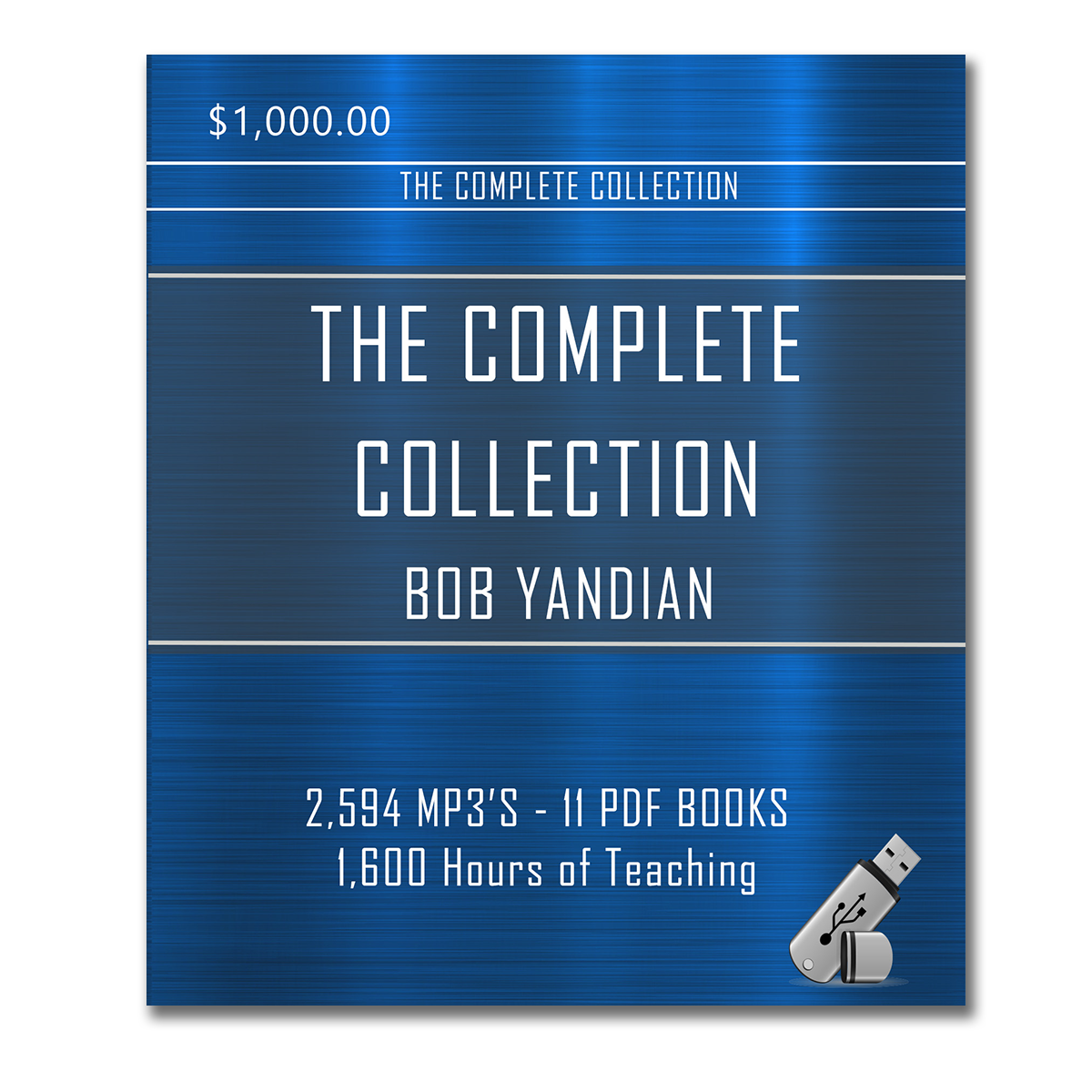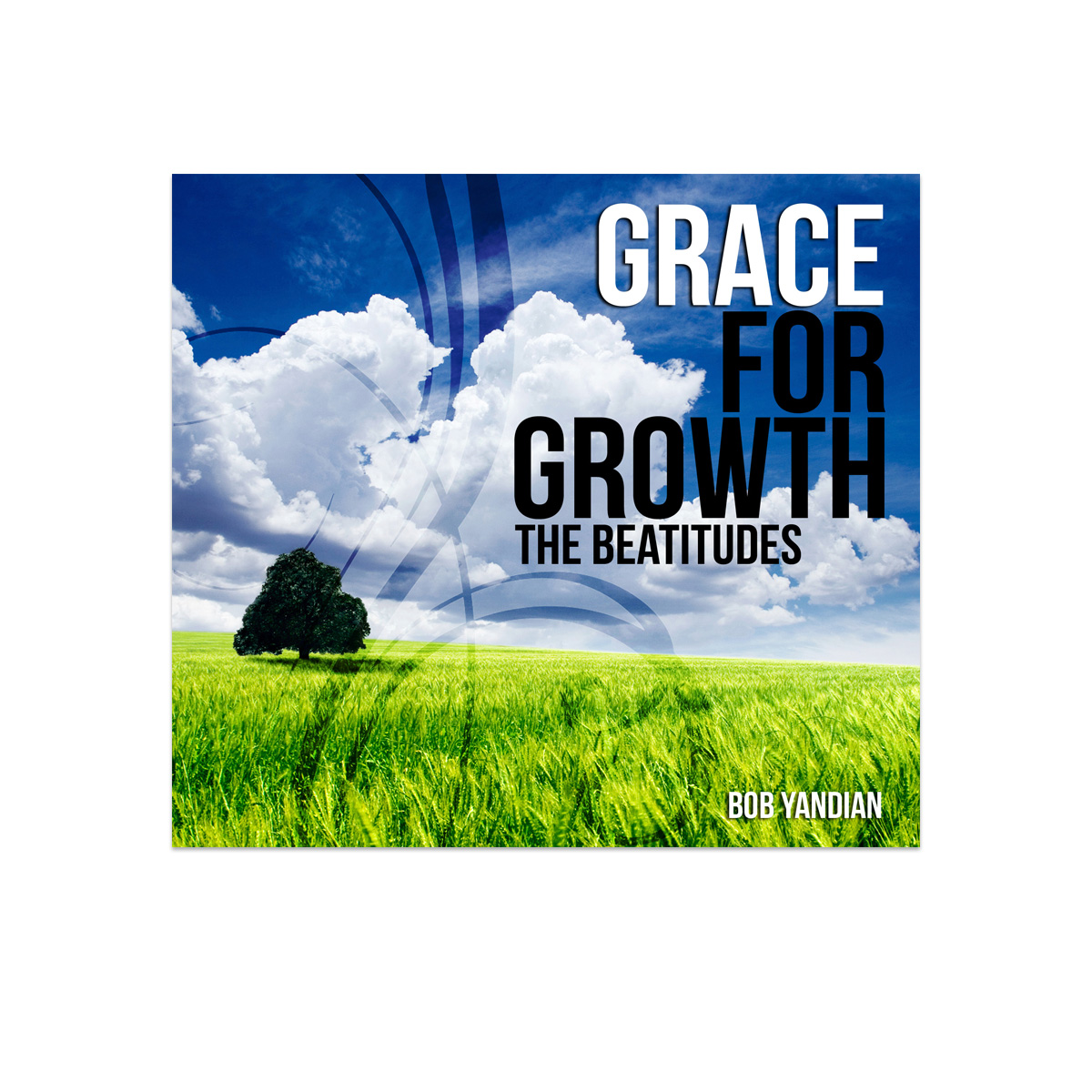Keep on Hearing
Bob Yandian
The Parable of the Sower and the Seed
“Behold, a sower went out to sow. And as he sowed, some seed fell by the wayside; and the birds came and devoured them. Some fell on stony places, where they did not have much earth; and they immediately sprang up because they had no depth of earth. But when the sun was up they were scorched, and because they had no root they withered away. And some fell among thorns, and the thorns sprang up and choked them. But others fell on good ground and yielded a crop: some a hundredfold, some sixty, some thirty. He who has ears to hear, let him hear!” (Matthew 13:3-9)
Jesus told the disciples that this parable was the key to all the parables. If they didn't understand this one, they would not understand any of them. The master key to this parable is found in verse nine when Jesus says, "He who has ears to hear, let him hear." When you find this hearing mentioned in the New Testament, especially in the Gospels, what it is actually saying is, "He that has ears to hear, let him keep on hearing." The second "hear" is linear action in the Greek which means it is a continuing action.
There is a connotation in this scripture which refers to more than just hearing with the physical ear. There is an actual comprehension that must take place. In other words, "let him understand what he is hearing." Jesus, not only, talks about ears to hear, He talks about eyes that see. This is the spirit eye which discerns. These references to eyes and ears allude to a spiritual understanding which comes by the continued repeating of God's Word, by keeping it in the midst of your heart until the revelation comes.
This same idea is brought out in Romans 10:17, " So then faith comes by hearing, and hearing by the word of God." You can hear God's Word every day and then one day you not only hear it, but you also understand it. This is one reason why we shouldn't be limited to hearing only one preacher. When one preacher doesn't open up the Word to you, someone else can. We need other ministers in the body of Christ to stay balanced. Listen to different approaches on the same subject from people you trust. Different people can have fresh insights into the Word. There are no new truths, but there are different insights into the truth.
In John 8:30-31, we learn that as Jesus was speaking, many people, including Jews suddenly believed on Him. "As He spoke these words, many believed in Him. Then Jesus said to those Jews who believed Him, “If you abide in My word, you are My disciples indeed."
Continue in the Word
It took the Word to get them born again, but notice that He says, "If you abide in My word, you are My disciples indeed. And you shall know the truth, and the truth shall make you free" (verse 32). Another word for abide is "continue." It is in continuing in the Word that is important.
I have seen many people who started attending church and listening to the Word and attending seminars because they were in crisis. Because they started to get into the Word, their problems turned around and the answer began to come. Then they slacked off the Word! The Word was needed only while they were in crisis. They treated God like a genie in a bottle. They rubbed the Word like the bottle and when they got there wishes, they put it back into the bottle until they needed it again. But, the Word doesn't work that way. Jesus said if you continue in the truth and the truth shall set you free.
I like to think of it this way, not only does the Word make you free, the Word can keep you free if you will continue in it. God doesn't want to just heal you. He wants you to walk in health. Healing comes through the gifts of the Spirit, but divine health comes from walking in the Word, continuing in the Word. 3 John 1:2 says, "Beloved, I pray that you may prosper in all things and be in health, just as your soul prospers."
Incline Your Ear
Proverbs 4:20-22, tells us these same things. "My son, give attention to my words; incline your ear to my sayings. Do not let them depart from your eyes; keep them in the midst of your heart; for they are life to those who find them, and health to all their flesh."
When you "give attention" to something, you need to attend to it again and again. If you attend to the dirty dishes, they will not stay clean forever. You will have to attend to them again after the next meal. A lawn mowed once must be attended to again in a few weeks. There is little reward in attending to the dishes or to the grass, but if you attend to the Word, there are tremendous rewards. This is something you can attend to and your rewards are actually greater than the time you spend doing the attending. When you attend to the Word, you plant seeds and the reward exceeds what you put into it. You are always going to reap more than what you sow. So if you sow time into the Word and attend to it, you are going to reap back tremendous benefits.
The verses from Proverbs tell us how to attend to the Word. First of all, incline your ear (vs. 20). Jesus said those that have ears let him hear. These verses are saying the same thing if you have an ear, incline it to hear. To incline your ear to His sayings, you have to bend over and put a little effort into it and get close. It takes an effort to fill your ear with the Word of God.
Second, "Do not let them depart from your eyes" (vs. 21). Even though you may have the Word go into your ears, the devil will jump in front of your eyes. You should keep those two gates into your body open only to the Word. Keep the Word in front of your eyes, put a verse on your mirror, read the Word at the breakfast table, or tack up a scripture at work. Always have a way to keep the Word in front of your eyes.
The third thing to do with God's Word is to keep it "in the midst of your heart" (vs. 21). This is what causes the Word to go so deeply that the birds of this first parable can't get it. By keeping it ever in your ear and ever before your eyes, it goes deep into your heart. Let's relate this idea of hearing the Word and keeping it before your eyes to the Parable of the Sower and the Seed. This continuous hearing and seeing is what brings comprehension and revelation. This is like the germination of a seed. That is when the seed breaks forth and blooms and reveals itself. That's when the healing comes, or the financial need is met. Then you water it with the Holy Spirit by praying in tongues.
Psalm 4, tells us that God's words are life to those who find them and health to all their flesh (vs. 22). In other words, the Word of God prospers you inside first, then it goes to the outside. This is much like a seed. It goes into the ground and the work that is first done is not seen by the natural eye, but then it springs forth and can be seen. As the Word is planted in your heart, the first thing that it begins to produce is life, peace, joy, the fruit of the Spirit. Then it will spring forth and become health to ALL your flesh. Keeping that Word in your heart will cause even natural things to break forth.
"But blessed are your eyes for they see, and your ears for they hear; for assuredly, I say to you that many prophets and righteous men desired to see what you see, and did not see it, and to hear what you hear, and did not hear it." (Matthew 13:16-17)
What happens to the eyes that see and the ears that hear? It becomes life to those that find them and health to all their flesh. The essence of this parable is this - that a parable is not cracked by casual heaing or seeing. It is cracked by a continual going over until the revelation occurs. There are many things in the Word of God which are not grasped on the surface; you have to study them.






